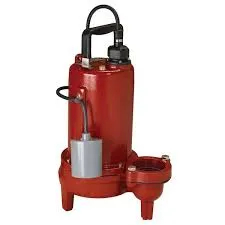Uzbek
- Afrikaans
- Albanian
- Amharic
- Arabic
- Armenian
- Azerbaijani
- Basque
- Belarusian
- Bengali
- Bosnian
- Bulgarian
- Catalan
- Cebuano
- Corsican
- Croatian
- Czech
- Danish
- Dutch
- English
- Esperanto
- Estonian
- Finnish
- French
- Frisian
- Galician
- Georgian
- German
- Greek
- Gujarati
- Haitian Creole
- hausa
- hawaiian
- Hebrew
- Hindi
- Miao
- Hungarian
- Icelandic
- igbo
- Indonesian
- irish
- Italian
- Japanese
- Javanese
- Kannada
- kazakh
- Khmer
- Rwandese
- Korean
- Kurdish
- Kyrgyz
- Lao
- Latin
- Latvian
- Lithuanian
- Luxembourgish
- Macedonian
- Malgashi
- Malay
- Malayalam
- Maltese
- Maori
- Marathi
- Mongolian
- Myanmar
- Nepali
- Norwegian
- Norwegian
- Occitan
- Pashto
- Persian
- Polish
- Portuguese
- Punjabi
- Romanian
- Russian
- Samoan
- Scottish Gaelic
- Serbian
- Sesotho
- Shona
- Sindhi
- Sinhala
- Slovak
- Slovenian
- Somali
- Spanish
- Sundanese
- Swahili
- Swedish
- Tagalog
- Tajik
- Tamil
- Tatar
- Telugu
- Thai
- Turkish
- Turkmen
- Ukrainian
- Urdu
- Uighur
- Uzbek
- Vietnamese
- Welsh
- Bantu
- Yiddish
- Yoruba
- Zulu
Telephone: +86 13120555503
Email: frank@cypump.com
Noy . 24, 2024 11:46 Back to list
impeller slurry pump
Understanding Impeller Slurry Pumps Design and Applications
Impeller slurry pumps are specialized machines designed for the efficient transport of thick, abrasive mixtures known as slurries, which contain solid particles suspended in a liquid. These pumps play a crucial role in various industries, including mining, oil and gas, and wastewater management, where the movement of solid-liquid mixtures is common.
The core component of an impeller slurry pump is the impeller itself, which is a rotating device that imparts velocity to the slurry. The impeller's design varies depending on the type of slurry it will handle. For example, in mining operations where the slurry can contain sand, gravel, or other coarse materials, the impeller is often robust and employs a larger centrifugal design to effectively handle the high levels of viscosity and density.
One of the key features of impeller slurry pumps is their ability to manage the abrasive nature of the materials being pumped. The materials used in the construction of these pumps are typically high chrome alloys, rubber-lined, or made from other durable substances that can withstand wear and tear. This construction ensures that the pumps maintain a long operational life while minimizing the need for frequent maintenance or replacement.
The efficiency of an impeller slurry pump is also determined by its hydraulic design
. The pump casing is often volute or vortex in shape, allowing for optimal flow characteristics that reduce turbulence and wear. This design is essential for minimizing energy consumption and ensuring that the pump operates effectively, even when faced with challenging pumping conditions.impeller slurry pump

In terms of applications, impeller slurry pumps are invaluable in mineral processing plants, where they facilitate the movement of finely crushed ore mixed with water. They are also commonly used in dredging operations to remove sediments from rivers and lakes. In wastewater management, these pumps are integral to transporting sludge and other residuals through treatment facilities.
Another essential factor in the operation of impeller slurry pumps is their ability to handle varying flow rates and solid concentrations. Many modern pumps come equipped with variable speed drives and advanced controls, allowing operators to adjust the pumping speed according to the specific needs of the process. This adaptability helps enhance overall system efficiency and reduces operational costs.
Moreover, the selection of the right impeller slurry pump involves considering the specific properties of the material to be pumped, including particle size, density, and corrosiveness. Properly matching the pump type and configuration to the application is crucial for maximizing performance and longevity.
In summary, impeller slurry pumps are vital components in industries that deal with the transport of abrasive solid-liquid mixtures. Their design features, such as robust construction, efficient hydraulic geometry, and adaptability to changing operational demands, make them essential for optimizing the efficiency of various processes. As technology continues to advance, we can expect further innovations in pump designs that enhance performance and reliability, enabling industries to tackle even the most challenging slurry applications with ease.
-
Custom Drilling Mud and Slurry Pump Supplier - High Efficiency, Tailored Solutions
NewsJun.10,2025
-
Supply Vertical Submersible Sewage Pump High-Efficiency WQ/QW Pumps Supplier
NewsJun.10,2025
-
Premium Sewage Ejection System & Pumps Efficient Waste Removal
NewsJun.09,2025
-
Premium Wholesale Slurry Pump Impellers Durable & Efficient Slurry Handling
NewsJun.09,2025
-
Top Sewage Pump Companies Durable Industrial Solutions for Efficiency
NewsJun.09,2025
-
Heavy Duty Slurry Pumps - OEM High Performance & Bulk Wholesale
NewsJun.09,2025










